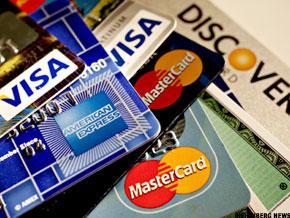Koyal Private Training Group
Koyal Training’s central MISSION is to establish better COMPREHENSION and KNOWLEDGE of insurance scams. Visit our at website http://koyaltraininggroup.org/

Dear Liz: I'm confused about paying down credit card debt. Some say to pay the lowest-balance cards first and others say the highest balance or the one with the highest interest. I have almost $16,000 on credit cards ranging from a $4,930 balance on a card with an 8.24% interest rate to $660 on a card with an 18% rate.
Answer: Actually, the first question you should ask is "How much credit card debt do I have compared to my income?" If your balances equal half or more of your annual earnings, you may not be able to pay it all off. You should make appointments with a legitimate credit counselor (such as one affiliated with the National Foundation for Credit Counseling at http://www.nfcc.org) and a bankruptcy attorney (referrals from the National Assn. of Consumer Bankruptcy Attorneys at http://www.nacba.org).
If your situation isn't that dire, the fastest way out of debt is to pay the minimums on your lower-rate cards and send as much money as possible to your highest-rate card. Once that's paid off, concentrate on paying off the next-highest-rate card, and so on. Some people instead like to target balances from smallest to largest to get a quicker feeling of victory, but you typically pay more in interest with that approach.
Ranking credit card firms
Dear Liz: My wife and I have had our bank's airline cards a long time, but we want to change because it's become almost impossible to cash in the miles. What I don't see in various card-comparison articles are ratings of the card issuers for customer service and fraud protection. Our bank has been quite good at both, but what about the other issuers?
Answer: People are often unduly impressed when their credit card issuers contact them frequently about possibly fraudulent charges. The issuers are the only ones at risk in these situations, since under "zero liability" policies you can't be held responsible for bogus charges. Also, if their software were better, they might do a better job of separating legitimate from fraudulent transactions and have to bother you less.
In any case, it's tough to tell as a customer how good the issuer's fraud prevention measures are. So perhaps a better metric to use is customer service, and J.D. Power publishes an annual credit card satisfaction study that tries to gauge six factors: interaction; credit card terms; billing and payment; rewards; benefits and services; and problem resolution. American Express has ranked at the top of the survey every year since it started seven years ago. Discover ranked second for 2013 and Chase ranked third.
Who doesn't offer a 401(k) match?
Dear Liz: As a CPA financial advisor to individuals and small businesses, I devour your column. It's almost always spot on. But the first sentence of your advice to the person whose 401(k) doesn't offer a match — "start looking for a better job" — was not, and you missed an opportunity to educate your readers in how to compare job compensation.
I encourage my small-business and wage-earning clients to adopt a "total compensation" view to evaluate labor costs and to talk wages with their employees or employers. Employer A offering $100,000 might be better, worse or equal to Employer B offering $70,000 plus retirement plan match and, more importantly, employer-subsidized family health insurance. Besides the intangible factor of job satisfaction, one just doesn't know which employer's total financial compensation is "better" without crunching the numbers before and after tax. The two companies might be different only in philosophy of how compensation is paid, not better or worse.
Answer: Some jobs come with pensions or pay so good that the lack of a company 401(k) match is all but irrelevant. It's safe to say those jobs are not in the majority. The median full-time wage at the end of last year was under $44,000, which means half of all workers earned less. Given stagnant incomes and rising costs, many workers have a tough time saving, so the extra help provided by a company match can make a world of difference in their ability to achieve a comfortable retirement.
Identity theft is a nightmare that can ruin lives
Nine out of 10 employers that have a 401(k) offer a match, according to PlanSponsor.com, so plans that don't are definitely outliers. The most common match is now 100%, or one dollar for each dollar contributed, up to 6% of the worker's salary, according to the most recent Aon Hewitt study. Nineteen percent of the employers surveyed offered this match, up from 10% in 2011. The most common match used to be 50 cents for each dollar contributed up to 6% of salary.
By Koyal Private Training Group
Koyal Training’s central MISSION is to establish better COMPREHENSION and KNOWLEDGE of insurance scams. Visit our at website http://koyaltraininggroup.org/